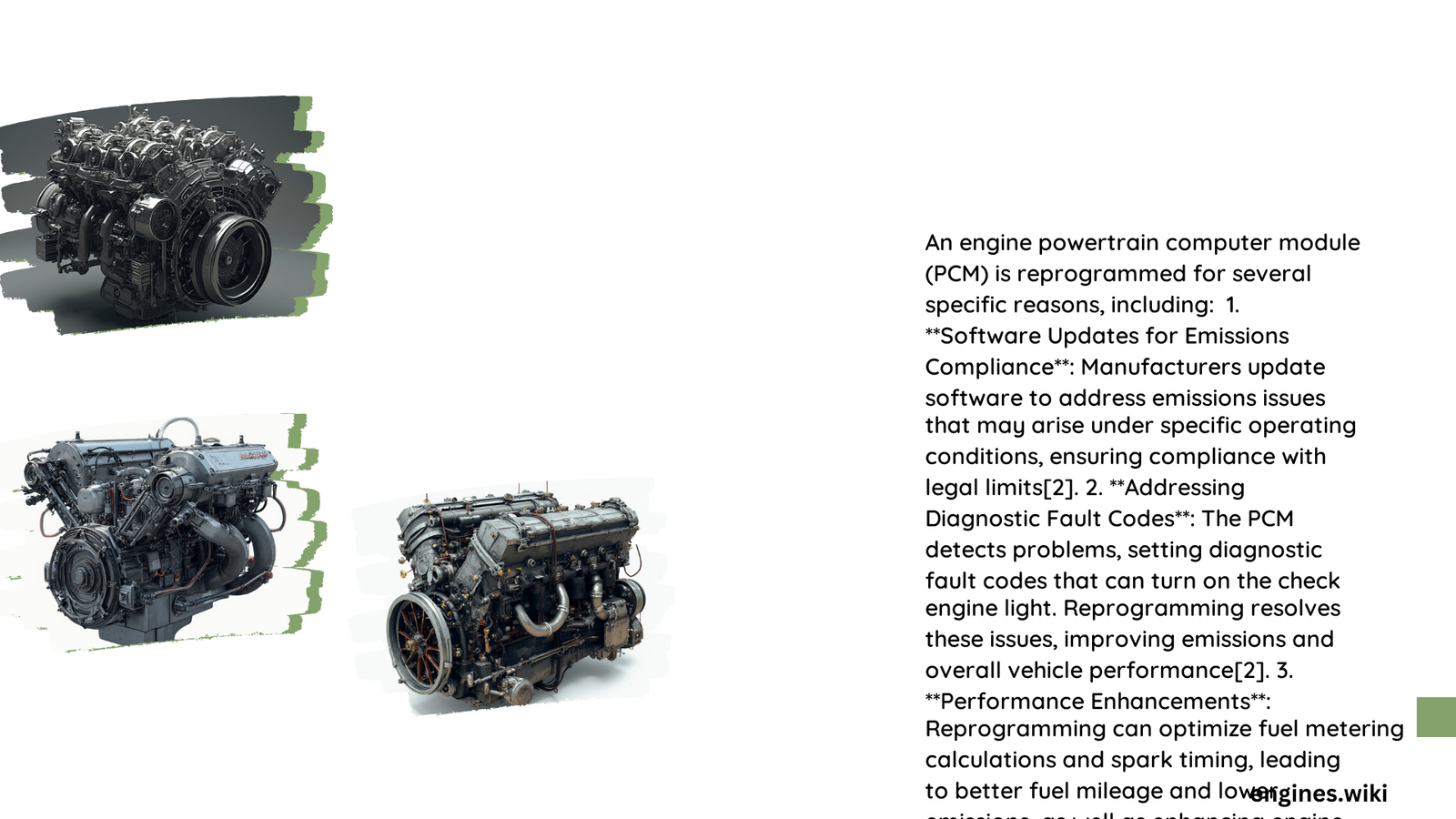Modern vehicle engines rely on sophisticated Powertrain Control Modules (PCM) that manage complex interactions between various systems. Reprogramming these computer modules becomes essential for optimizing vehicle performance, resolving diagnostic issues, improving fuel efficiency, and ensuring compliance with evolving technological and regulatory standards. Vehicle owners and technicians utilize PCM reprogramming as a strategic approach to enhance overall engine functionality and address specific mechanical challenges.
What Triggers Engine Powertrain Computer Module Reprogramming?
Performance Enhancement Strategies
Vehicle performance optimization represents a primary motivation for PCM reprogramming. Technicians can achieve significant improvements through targeted software modifications:
| Performance Aspect | Potential Improvement |
|---|---|
| Horsepower | 5-15% increase |
| Torque | 5-15% increase |
| Throttle Response | Significantly enhanced |
| Acceleration | Smoother and more responsive |
Key Performance Adjustment Areas
- Air-Fuel Ratio Calibration
- Spark Timing Optimization
- Transmission Shift Point Refinement
Why Do Diagnostic Fault Codes Require Reprogramming?
Diagnostic trouble codes (DTCs) often necessitate PCM reprogramming to resolve underlying system issues:
- Misfire Detection Correction
- Addresses random cylinder misfire codes
-
Adjusts ignition and fuel injection parameters
-
Sensor Threshold Recalibration
- Eliminates false diagnostic warnings
- Ensures accurate sensor performance monitoring
How Does Reprogramming Impact Fuel Efficiency?
Strategic PCM reprogramming can yield measurable fuel economy improvements:
- Average Fuel Economy Increase: 2-5%
- Optimization Techniques:
- Engine idle speed adjustment
- Precise fuel injection timing
- Emission control function refinement
When Are Software Updates Mandatory?
Manufacturers mandate PCM reprogramming under specific circumstances:
- Recall Notifications
- Technical Service Bulletins
- Emissions Compliance Requirements
- Safety System Enhancements
Cost Considerations for PCM Reprogramming
| Scenario | Typical Cost |
|---|---|
| Warranty Coverage | Often Free |
| Post-Warranty Update | Variable Pricing |
| Performance Tuning | $300-$900 |
Professional Recommendations
Experts recommend:
– Always consult certified automotive technicians
– Use manufacturer-approved reprogramming methods
– Maintain comprehensive vehicle maintenance records
– Verify compatibility with existing vehicle systems
Technical Expertise Requirements

Successful PCM reprogramming demands:
– Advanced diagnostic equipment
– Specialized software access
– Comprehensive understanding of vehicle electronics
– Precise calibration skills
Potential Risks of Improper Reprogramming
- Voided vehicle warranty
- Potential engine damage
- Reduced vehicle reliability
- Increased emissions
Conclusion
PCM reprogramming represents a sophisticated approach to vehicle performance management, requiring technical expertise and strategic implementation.
